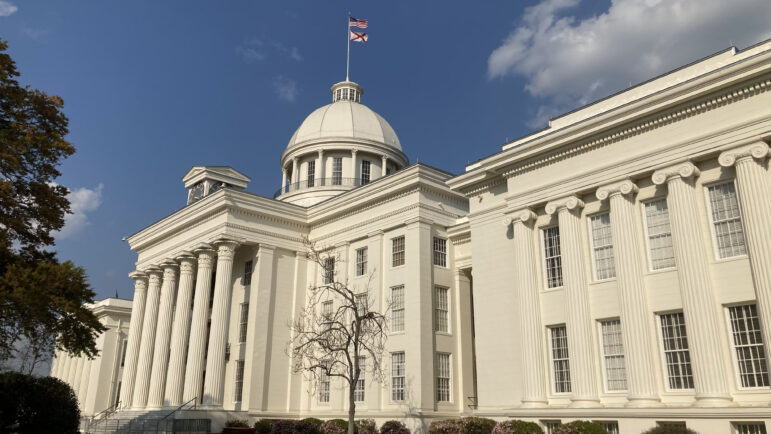Republican lawmakers said they’d bring up school choice in this year’s Alabama legislative session. This week they filed House and Senate versions of the Parental Rights in Children’s Education or PRICE Act. The proposal would create education savings accounts.
“This is a popular concept that’s been passed in multiple states – Arizona, Florida and Iowa being the most recent,” said Todd Stacy, host of Capitol Journal on Alabama Public Television.
Stacy discussed that and other actions in the legislature this week.
Public, private, home schooling – what’s the choice?
Under the bill, families would receive $6,900 in taxpayer money through these education savings accounts which could be used toward private school or home schooling.
Stacy said the bill is very broad, in part because there are no income restrictions. Families who currently have children in private school or home school are eligible. He said the Alabama version does not have the same accountability measures as other states have implemented.
“Those are a couple of the issues you’re going to see discussed as this bill comes into committee … the money that it takes away from the Education Trust Fund and the lack of accountability,” Stacy said.
The bill’s Senate sponsor, Republican Sen. Larry Stutts of Tuscumbia, has said the proposal is intended to help rural families. However, rural lawmakers have offered mixed reactions to school choice legislation in the past. Rural communities also have fewer education options.
“Their response to that is having this law would encourage that, would encourage more private schools and more home-school groups to pop up in rural areas,” Stacy said.
Divided over “divisive concepts”
The House State Government Committee approved a bill Wednesday which would ban discussion of “ divisive concepts ” in classroom lessons and worker trainings on race and gender.
The bill would prohibit a list of what it calls “divisive concepts,” or ideas that people from any one group should be asked to accept “a sense of guilt” because of their race or gender — or that fault, blame, or bias should be assigned to a race or gender solely because of their race or gender.
“We’re kind of talking around the issue of critical race theory,” Stacy said.
The legal concept has become a target of conservatives who say kids and institutions are being introduced with “woke” policies.
“[Debate] was pretty passionate on both sides,” Stacy said. “African-American lawmakers, [Democratic] Rep. Prince Chestnut [of Selma] in particular was very passionate about this saying that he feared that such a bill would have a chilling effect in history classes in public schools to avoid the subject of slavery, avoid the uncomfortable subjects that are just part of our history.”
Bill backers say they want that history to be taught, but not in a divisive way.
Transgender athletes on campus
The House Education Policy Committee Wednesday approved a bill that would ban transgender women from playing collegiate sports on teams that match their gender identities. It would extend a law passed last year which enacted the ban for K-12 athletes in Alabama.
“It’s the familiar dividing lines. You’ve got Republicans and those on the right who say ‘it’s not fair for those who are biologically male and have those inherent, biological advantages and athleticism to compete in women’s sports,’” Stacey said. “But the other side says, ‘no, it’s discriminatory. The government shouldn’t have any business regulating this kind of thing.’”
Stacy said one reason states are pursuing these types of bills is that the NCAA does not have clear policies on transgender athletes.
“Colleges and universities, they don’t really like any kind of new laws that regulate them. I’m sure the same is true of athletics,” Stacy said. “On the other hand, some have told me universities, rather than having to make up their own mind about these types of decisions … they can just point at the state.”
Lolly, Lolly, Lolly get your ad lib here
One lighter moment came Wednesday when Senate Minority Leader Bobby Singleton of Greensboro sang “I’m Just a Bill” from the School House Rock educational cartoons on the Senate floor.
It wasn’t a filibuster per se, Stacy said. Rather it’s a delaying tactic while negotiations continue around legislation.
“Sen. Singleton is a frequent person on the mic at those times. He can be a real character,” Stacy said. “I thought it was hilarious and I grew up on all those School House Rock videos and look, that video, that’s an excellent explanation of the legislative process.”
Other action
Bill would let parents “opt out of school mask mandates
Lawmakers give final passage to reduce use of good time incentives in state prisons

